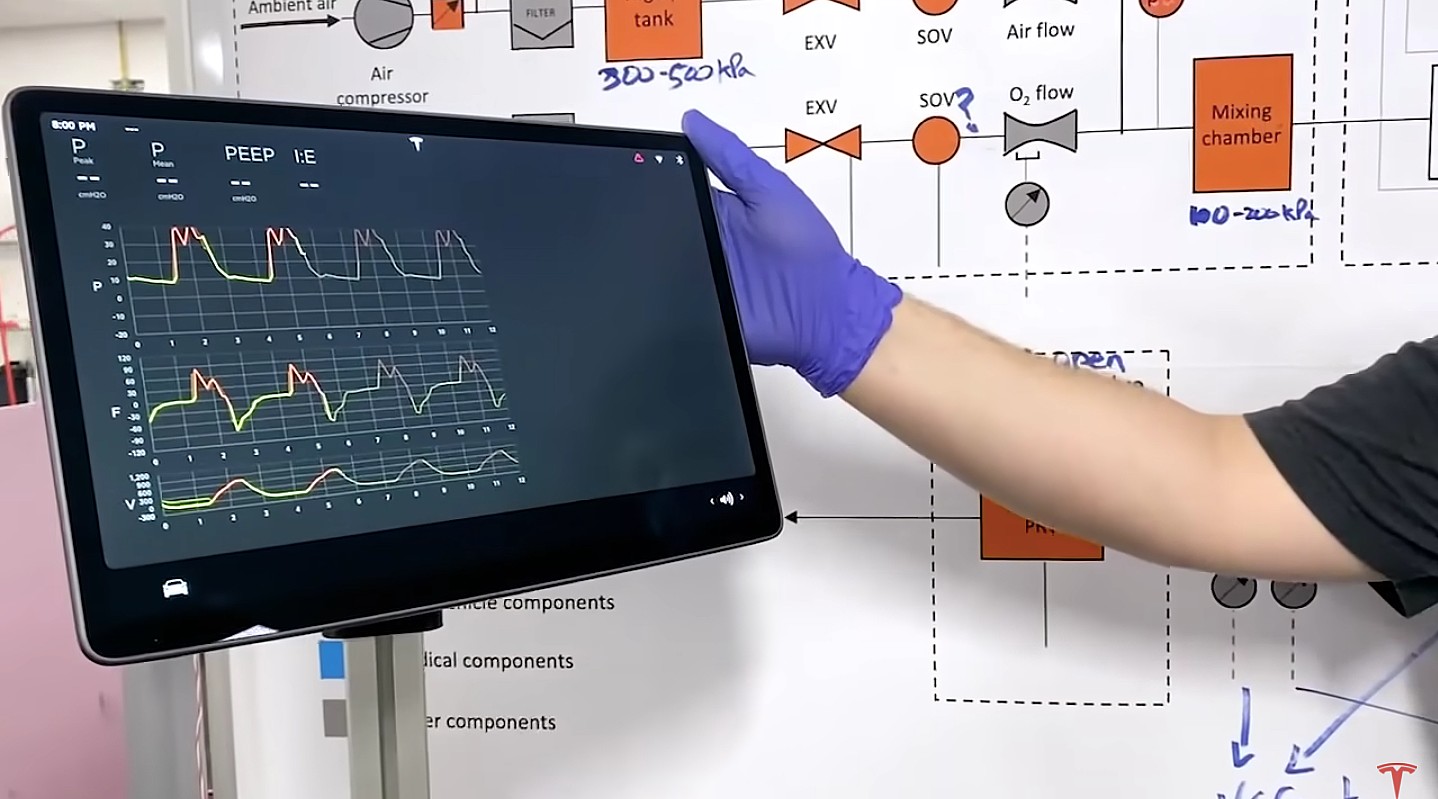
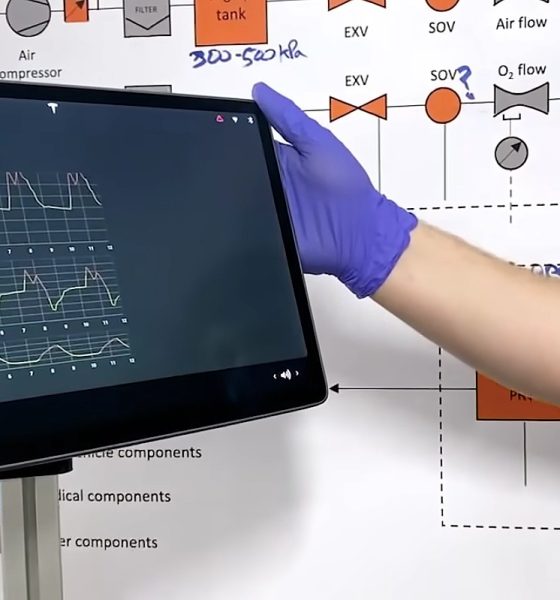
News
Tesla’s ventilator donations are being used to provoke Elon Musk into another controversy
During a global pandemic, an optimist would hope that people would work together to help those in need out of the common good. A pessimist would suggest that such circumstances would bring out the worst in people instead. Recent developments in the media coverage of Elon Musk and Tesla’s ventilator donations suggest that the pessimist is right. At times like these, there are entities who choose to provoke people that are willing to help–all for the sake of controversy.
Elon Musk is no stranger to controversy, both self-inflicted or otherwise. Over the past years, Musk has butted heads with several entities, from regulators like the SEC to journalists who tend to cover Tesla with pervading negative slant. Some of these bouts have resulted in a lot of pain for Musk and even Tesla shareholders. An example of this is Musk’s spat with British caver Vern Unsworth, whose defamation case against the CEO over comments following the Thailand cave rescue triggered some TSLA stock swings and extensive coverage from multiple premier news outlets.
Musk has a strong tendency to correct misleading reports. Take CNN’s recent coverage of Tesla’s ventilator donations, for example. The news outlet published a report alleging that no ventilators have reached CA hospitals despite Musk’s commitment to do so. Musk then took it upon himself to correct the report, showing messages between Tesla and the medical professionals from the state communicating about the donated machines and their use.
This, of course, triggered even more staff from CNN to double down, alleging that the non-invasive ventilators donated by Tesla weren’t ventilators at all, despite medical professionals stating that the machines are invaluable for non-critical coronavirus cases. The BiBAPs and CPAPs donated by Tesla could even be retrofitted using a simple modification to work for critical cases. Tesla has also started delivering actual invasive ventilators to hospitals, on top of the company’s efforts to develop its own ventilator using Model 3 parts.
Anyone with an iota of sense would see that Tesla and Musk are pretty much doing what they can to address the needs of medical professionals as much as possible. Are the BiBAPs and CPAP’s donated by Musk useful in the battle against the coronavirus? Medical professionals, government officials, and CEOs of actual ventilator makers would agree. Can the machines be modified to work for more severe cases? The doctors at Mt. Sinai Hospital in New York say it’s actually pretty simple to do so. With this in mind, it seems like a no-brainer to conclude that the machines Tesla donated are indeed helping in the battle against the ongoing pandemic.
This point was lost entirely in critical articles that have been published about Musk and Tesla’s donations from outlets such as CNN. One who is unfamiliar with the events that led up to Musk’s recent Twitter interactions would likely think that the Tesla CEO brazenly lied when he committed to donating free ventilators, instead giving away cheap machines that are useless against the C-19 virus. Critics would even refuse to acknowledge non-invasive machines as actual ventilators, despite authorities such as John Hopkins listing them as such.
A key thesis against Musk alleges that he lied about ventilator donations to get some free PR and goodwill. This does not hold water, as Tesla and Musk already receive an insane amount of media coverage, and the company is scrutinized consistently by the media and critics from Wall Street. Thus, the idea of Musk wanting more media coverage to stroke his ego does not seem to make sense, considering that he and his companies actually get a little bit too much coverage. With this in mind, it appears that CNN’s recent reports about Tesla’s ventilator donations, as well as the succeeding tweets from the media outlet’s staff doubling down on their narrative, are designed to do one thing. They are posted to provoke Musk, until such a time when he actually responds with something concretely controversial.
Something similar has happened before. Mention Musk’s name with the Thai cave rescue and many will likely remember the CEO’s incendiary comments against British caver Vern Unsworth. A popular narrative for the event also alleges that Musk stuck his nose into the rescue without prompting so he can get free PR, and that he “attacked” the caver just because he wanted to. The fact that Musk was invited to help, that his team was in close communication with rescuers, and that the caver initiated the verbal spat, are largely forgotten. These experiences, as painful as they may be, must now stand as a huge lesson to Elon Musk.
Musk is no stranger to controversies with the media, and having gone through significant pains over the years because of them, he must handle the ongoing attempts to provoke him with extreme caution. At this point, Musk’s critics (and apparently, CNN staff) are practically salivating at the prospect of the CEO firing off a tweet that can be interpreted as a direct act of aggression against the news outlet or any of its staff. So far, Musk’s responses have been sarcastic, and that’s fine and true to his personality. But the Tesla CEO must be aware that he is not playing a fair game here. Every point of syntax and semantics can and will be exploited to fit a narrative, even if it means twisting the context of a statement. With this in mind, Musk’s best strategy for now is to proceed with a ton of caution, or complete silence.

Elon Musk
Elon Musk reiterates Tesla Optimus’ most sci-fi potential yet
Musk shared his comments in a series of posts on social media platform X.
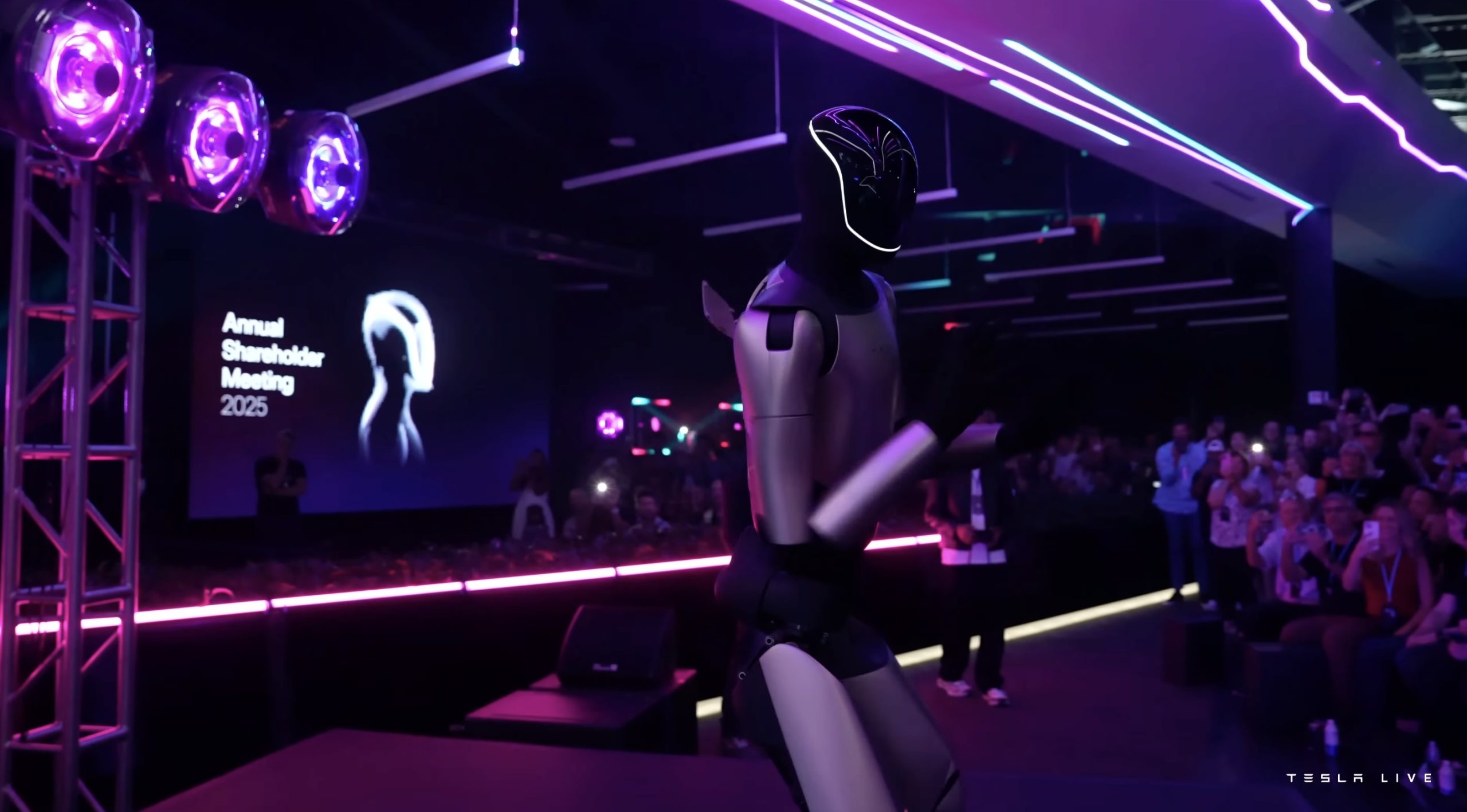
Elon Musk recently reiterated one of the most ambitious forecasts for Tesla’s humanoid robot, Optimus, stating it could become the first real-world example of a Von Neumann machine. He also noted once more that Optimus would be Tesla’s biggest product.
Musk shared his comments in a series of posts on social media platform X.
Optimus as a von Neumann machine
In response to a post on X that pondered on sci-fi timelines becoming real, Musk wrote that “Optimus will be the first Von Neumann machine, capable of building civilization by itself on any viable planet.” In a separate post, Musk wrote that Optimus will be Tesla’s “biggest product ever,” a phrase he has used in the past to describe the humanoid robot’s importance to the electric vehicle maker.
A Von Neumann machine is a class of theoretical self-replicating systems originally proposed in the mid-20th century by the mathematician John von Neumann. In his concept, von Neumann described machines that could travel to other worlds, use local materials to create copies of themselves, and carry out large-scale tasks without outside intervention.
Elon Musk’s broader plans
Considering Musk’s comments, it appears that Optimus would eventually be capable of performing complex work autonomously in environments beyond Earth. If Optimus could achieve such a feat, it could very well unlock humanity’s capability to explore locations beyond Earth. The idea of space exploration becomes more than feasible.
Elon Musk has discussed space-based AI compute, large-scale robotic production, and the role of SpaceX’s Starship in transporting hardware and materials to other planets. While Musk did not detail how Optimus would fit with SpaceX’s exploration activities, his Von Neumann machine comments suggest he is looking at Tesla’s robotics as part of a potential interplanetary ecosystem.
News
Tesla China January wholesale sales rise 9% year-on-year
Tesla reported January wholesale sales of 69,129 China-made vehicles, as per data released by the China Passenger Car Association.
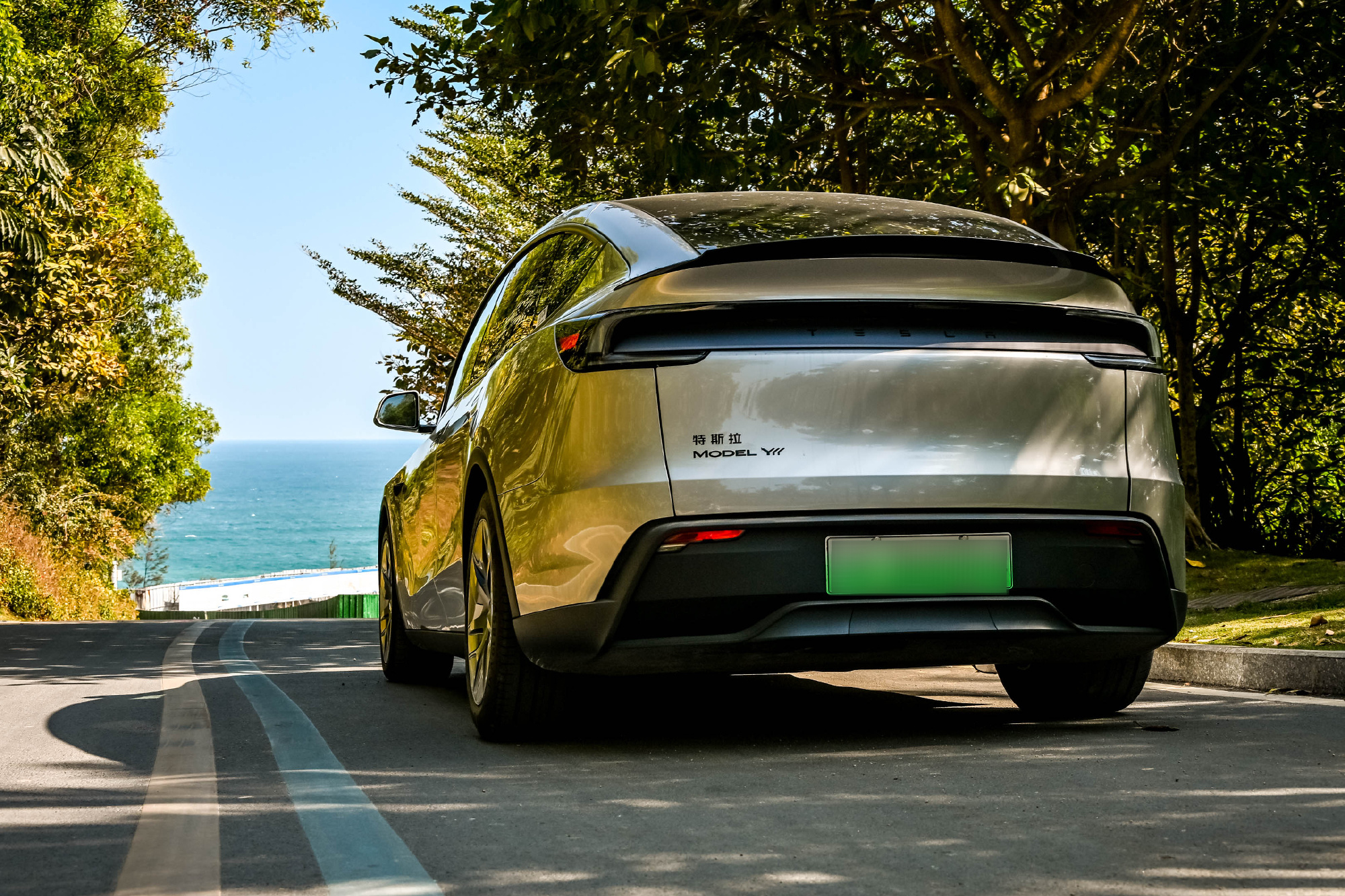
Tesla China reported January wholesale sales of 69,129 Giga Shanghai-made vehicles, as per data released by the China Passenger Car Association (CPCA). The figure includes both domestic sales and exports from Gigafactory Shanghai.
The total represented a 9.32% increase from January last year but a 28.86% decline from December’s 97,171 units.
China EV market trends
The CPCA estimated that China’s passenger new energy vehicle wholesale volume reached about 900,000 units in January, up 1% year-on-year but down 42% from December. Demand has been pressured by the start-of-year slow season, a 5% additional purchase tax cost, and uncertainty around the transition of vehicle trade-in subsidies, as noted in a report from CNEV Post.
Market leader BYD sold 210,051 NEVs in January, down 30.11% year-on-year and 50.04% month-on-month, as per data released on February 1. Tesla China’s year-over-year growth then is quite interesting, as the company’s vehicles seem to be selling very well despite headwinds in the market.
Tesla China’s strategies
To counter weaker seasonal demand, Tesla China launched a low-interest financing program on January 6, offering up to seven-year terms on select produced vehicles. The move marked the first time an automaker offered financing of that length in the Chinese market.
Several rivals, including Xiaomi, Li Auto, XPeng, and NIO, later introduced similar incentives. Tesla China then further increased promotions on January 26 by reinstating insurance subsidies for the Model 3 sedan. The CPCA is expected to release Tesla’s China retail sales and export breakdown later this month.
News
Tesla’s Apple CarPlay ambitions are not dead, they’re still in the works
For what it’s worth, as a Tesla owner, I don’t particularly see the need for CarPlay, as I have found the in-car system that the company has developed to be superior. However, many people are in love with CarPlay simply because, when it’s in a car that is capable, it is really great.
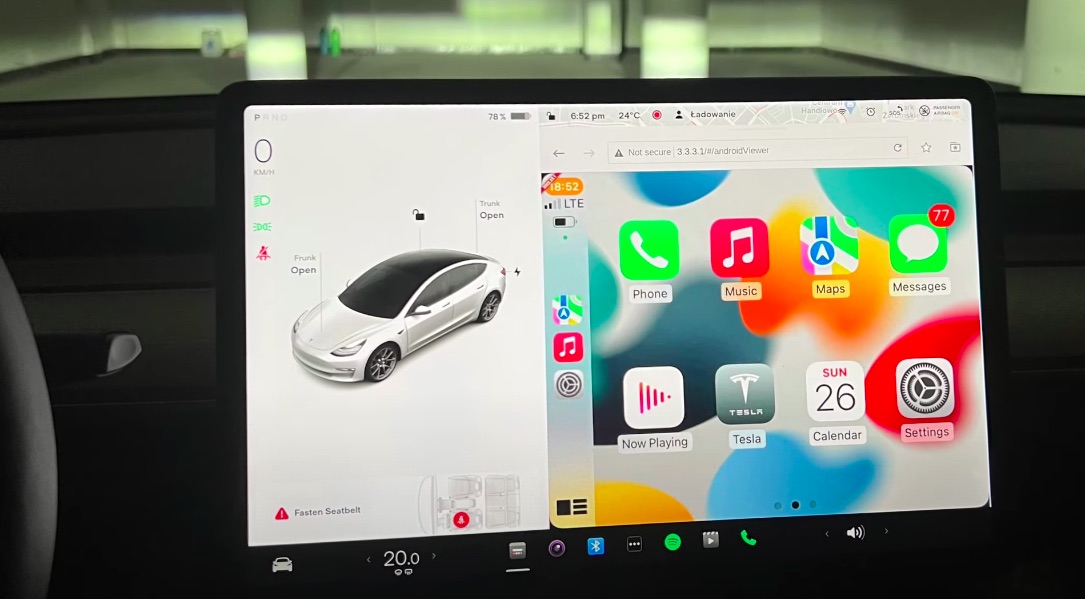
Tesla’s Apple CarPlay ambitions appeared to be dead in the water after a large amount of speculation late last year that the company would add the user interface seemed to cool down after several weeks of reports.
However, it appears that CarPlay might make its way to Tesla vehicles after all, as a recent report seems to indicate that it is still being worked on by software teams for the company.
The real question is whether it is truly needed or if it is just a want by so many owners that Tesla is listening and deciding to proceed with its development.
Back in November, Bloomberg reported that Tesla was in the process of testing Apple CarPlay within its vehicles, which was a major development considering the company had resisted adopting UIs outside of its own for many years.
Nearly one-third of car buyers considered the lack of CarPlay as a deal-breaker when buying their cars, a study from McKinsey & Co. outlined. This could be a driving decision in Tesla’s inability to abandon the development of CarPlay in its vehicles, especially as it lost a major advantage that appealed to consumers last year: the $7,500 EV tax credit.
Tesla owners propose interesting theory about Apple CarPlay and EV tax credit
Although we saw little to no movement on it since the November speculation, Tesla is now reportedly in the process of still developing the user interface. Mark Gurman, a Bloomberg writer with a weekly newsletter, stated that CarPlay is “still in the works” at Tesla and that more concrete information will be available “soon” regarding its development.
While Tesla already has a very capable and widely accepted user interface, CarPlay would still be an advantage, considering many people have used it in their vehicles for years. Just like smartphones, many people get comfortable with an operating system or style and are resistant to using a new one. This could be a big reason for Tesla attempting to get it in their own cars.
Tesla gets updated “Apple CarPlay” hack that can work on new models
For what it’s worth, as a Tesla owner, I don’t particularly see the need for CarPlay, as I have found the in-car system that the company has developed to be superior. However, many people are in love with CarPlay simply because, when it’s in a car that is capable, it is really great.
It holds one distinct advantage over Tesla’s UI in my opinion, and that’s the ability to read and respond to text messages, which is something that is available within a Tesla, but is not as user-friendly.
With that being said, I would still give CarPlay a shot in my Tesla. I didn’t particularly enjoy it in my Bronco Sport, but that was because Ford’s software was a bit laggy with it. If it were as smooth as Tesla’s UI, which I think it would be, it could be a really great addition to the vehicle.








